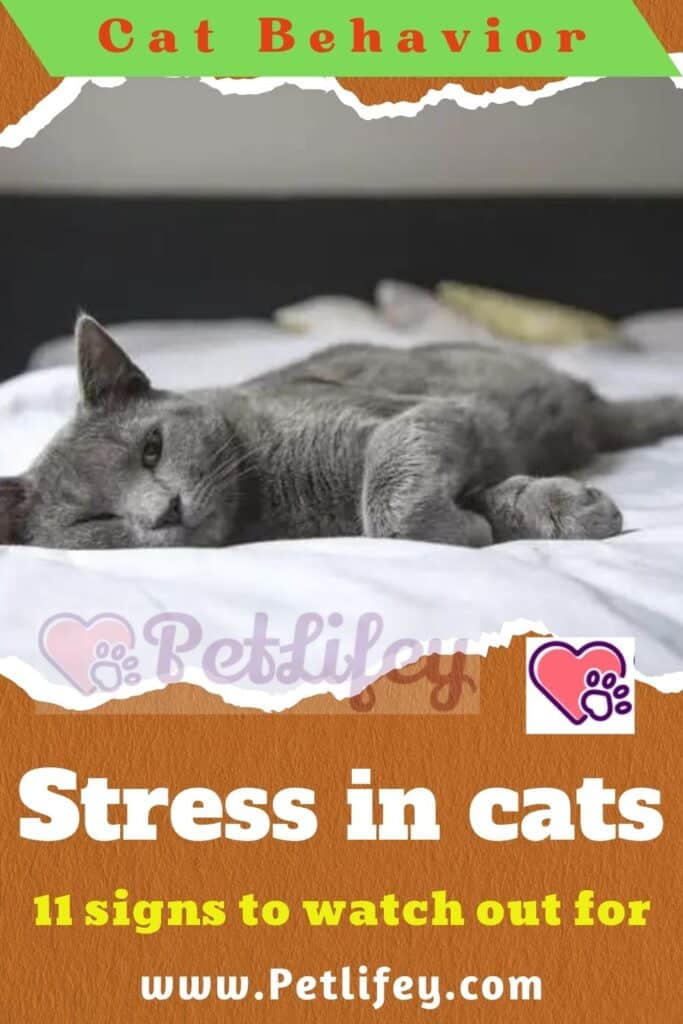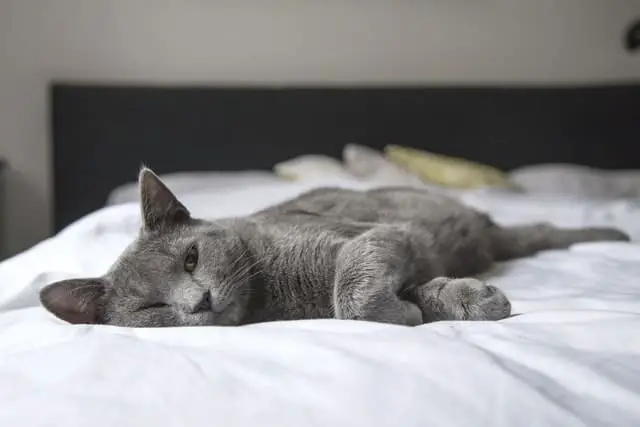
Beneath its proud air of being a great loner, the cat is actually a species with great sensitivity. A new addition to the family, the loss of a loved one, a move or just a piece of furniture that has moved can upset your cat. Indeed, the cat is a territorial animal that is very attached to its small habits. A disruption of these can quickly stress the cat and have consequences on its health such as skin or weight problems, cystitis, a decrease in immune defenses… Hence the importance of recognizing the signs showing that your ball of hair is stressed!
If you’ve recently noticed that your cat is showing one or more of the symptoms described in this article, it’s essential to identify the cause of their stress and remedy it. In the event of a change of environment, be sure to get them back to their old habits and entertain them with toys or other accessories (scratching post, hiding places, cat trees, etc.). You can also make an appointment with your veterinarian who can make sure your cat is not sick and offer you soothing hormone sprays or diffusers.
1. It scratches the furniture
When your cat scratches your furniture from top to bottom (vertically), it deposits pheromones on it. Its goal? Mark their territory. This behavior is a sign of stress! To prevent Felix from letting off steam on your furniture, install a scratching post near the areas on which it has become accustomed to scratching. You can also provide them with spaces where it will feel safe, at height for example. Also make sure that it has a healthy lifestyle (clean litter, quality self-service food, etc.) in order to reduce their stress.
2. It pees everywhere
Urine marking has the same meaning as scratching furniture. If your cat has always been clean and suddenly starts urinating and/or defecating out of its litter box, you may be wondering… It may be trying to mark its territory following an upsetting change in the household (moving, adopting a new animal, arrival of a baby, etc.). This abnormal behavior can also be linked to urinary problems or a lack of cleanliness of the litter box.
3. It is aggressive
Your little ball of fur, yet so kind and affectionate, has suddenly changed its behavior and started to become aggressive towards you and other members of your family? If it is not under any physical pain, it is probably under intense stress caused by a change in her environment.
4. It no longer eats or only eats
Anorexia and bulimia in cats both express a certain discomfort. Whether your furball has a habit of feasting on what you serve it and it suddenly starts to sulk its bowl, or on the contrary to downright turn into a voracious ogre, it is certainly confronted with something that does not concern it. not suitable.
5. It only meows
Does your cat meow excessively and make endless complaints for no apparent reason? If this is not part of his usual behavior, know that something is probably wrong and it is asking you for help.
6. It isolates itself
Your pot of glue is leaking your hugs and even just your touch? If it has a new tendency to isolate itself, even to hide itself so as not to be disturbed when it is not at all in their habits, beware, it is never without reason…
7. It only sleeps
Certainly, a cat spends most of its time sleeping (about 16 hours a day). If you have noticed that your cat is sleeping even more than usual (yes yes it is possible!), this is not normal.
8. It grooms itself too much or too little
If you have noticed that your cat grooms itself excessively, to the point of pulling out its hair, or if, conversely, you have noticed that it no longer grooms itself at all, you should put a flea in the ear. A cat that adopts an obsessive behavior can be the major sign of depression, a disease that is often fatal for our little felines. Indeed, a depressed cat loses interest in life and lets itself die.
9. It seems scared
If you notice that your cat looks frightened all the time, it’s definitely something that’s worrying them. This worry can show up when you make a sudden movement next to your them or when it hears familiar sounds (and runs off to hide).
10. It has digestive issues
Just like in humans, digestive upset is a sign of stress in cats. If your cat has diarrhea or is constipated even though you haven’t changed their diet (and it hasn’t ingested anything unusual) then something is at work.
11. It is often sick

Chronic stress can take a toll on your cat’s health and weaken its immune system. If your cat has recently developed infectious or autoimmune diseases repeatedly, this may be a sign of a deep malaise.






